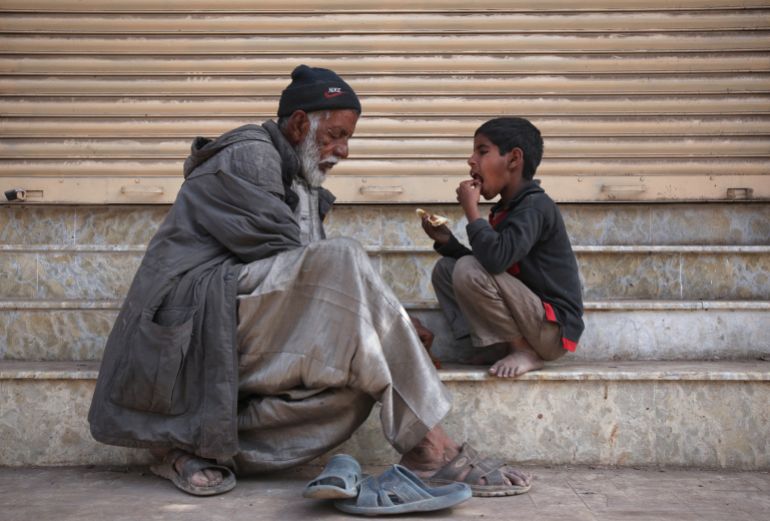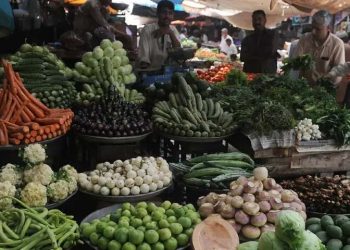Pakistan, the world’s fifth most populous country, has been ranked 99th out of 129 nations in a Global Hunger Index (GHI) report which described its level of hunger as “serious”.
The fourth edition of the report, prepared in collaboration between German non-profit Welthungerhilfe and its Irish counterpart Concern Worldwide, is a peer-reviewed publication and was launched in the Pakistani capital, Islamabad.

The report’s Pakistan chapter reveals the country’s score has dropped from 38.1 in 2006 to 26.1 in 2022, yet the hunger level is considered serious.
Zero score indicates a country has no issue of hunger.
“The current edition of the GHI reveals that armed conflicts, climate change, and the coronavirus pandemic are intensifying each other; as a result, up to 828 million people were forced to go hungry. As things stand, 46 countries will not even achieve a low level of hunger by 2030, much less eliminate hunger entirely. In Africa, South of the Sahara and South Asia are once again the regions with the highest rates of hunger. South Asia, the region with the world’s highest hunger level, has the highest child stunting rate and by far the highest child wasting rate of any world region,” it was informed through a statement.

The GHI is a pre-reviewed annual report, jointly published by Welthungerhilfe and Concern Worldwide and shall raise awareness and understanding of the struggle against hunger.
According to the report, the combination of armed conflicts, climate change, and the coronavirus pandemic has exacerbated hunger issues, forcing approximately 828 million people into hunger globally. Moreover, it highlights that 46 countries are not on track to achieve even a low level of hunger by 2030, signaling the need for urgent action.
The regions most affected by hunger are Africa, specifically South of the Sahara, and South Asia, with the latter being the worst-hit. Notably, South Asia has the highest child stunting rate and the highest child wasting rate among all world regions.
Pakistan, with a serious level of hunger, faces significant challenges in eradicating this issue. As the nation strives to address this pressing problem, stakeholders are urged to collaborate and implement solutions that involve local communities and diverse voices in shaping effective policies for food security.
The Global Hunger Index serves as a vital tool in identifying and tackling hunger-related problems, and it is hoped that with collective efforts, progress will be made towards achieving a hunger-free world.
Highlighting a global food crisis, the report says that a “toxic cocktail of conflict, climate change and the COVID-19 pandemic” left millions vulnerable to food shortages.
Alarmingly, according to the report, GHI projections show that at least 46 countries in the world, including Pakistan, will fail to achieve “low hunger” by 2030.
Pakistan achieved a score of 26.1 for the 2022 report, worse than its 29.6 in the last edition of the report in 2014.
The 2007 and 2000 reports showed Pakistan’s GHI score at 32.1 and 36.8 respectively.
Pakistan was singled out along with five other countries with increasing stunting rates in children.









